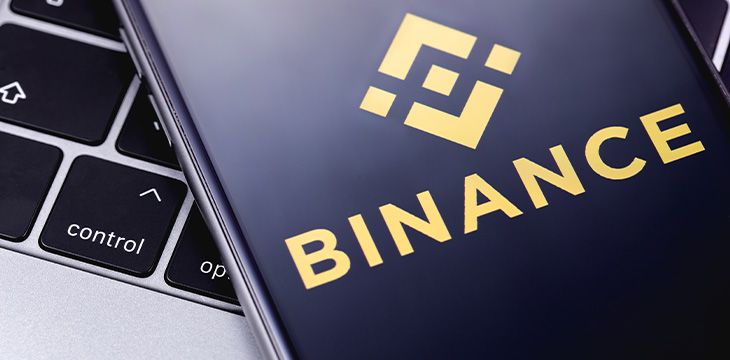| Getting your Trinity Audio player ready... |
Reuters have published the results of an investigation into Binance, revealing that the company pursued a strategy of misleading and dodging regulators which involved forging documents and an exodus of their compliance team.
Perhaps most damning of all is that the investigation confirms many accusations which Binance and its leadership have spent years denying. Binance has responded to accusations of this kind in a manner typical of an exchange that has been around long enough to collect some serious skeletons: all lies and FUD spread by the enemies of Binance, or the enemies of crypto, or the government, or all of the above. Contrary to criticism, the company would often say, compliance is actually Binance’s priority.
But the Reuters investigation hones in on specific and long-standing accusations against Binance and its founder/CEO, Changpeng Zhao—and it’s got the receipts to follow through. As part of its investigation, Reuters interviewed “around 30 former employees, advisers and business partners” as well as pored over thousands of company messages, emails and documents dated between 2017 and 2022.
The result is a painting of cryptocurrency exchange Binance—under the leadership of Changpeng Zhao—as an organization obsessed with fast growth, one which took the attitude that if the business wasn’t encountering problems, then they weren’t advancing fast enough.
Those problems, it seems, were very much of the legal variety.
Reuters found Zhao had approved a plan to ‘insulate’ Binance from regulatory scrutiny in the United States by creating a new, U.S.-compliant exchange to soak up attention from the likes of the Securities and Exchange Commission (SEC). The new exchange was Binance.US. This strategy was dubbed the ‘tai chi’ strategy back when Forbes initially reported the story based on leaked Binance documents in 2020. Forbes’ reporting back then led to ardent denials from Binance and a defamation suit against the outlet—a suit Binance subsequently dropped.
Changpeng Zhao himself claimed—and continues to claim—that he never signed off on the Binance.US plan. But Reuters spoke with two employees who say they were present at a meeting in which Zhao approved the plan in order to avoid losing U.S. customers. There also further messages in the months following the establishment of Binance.US which emphasize the need to conceal that it was in fact owned by Zhao.
And if Binance’s position is that Binance.US is a genuine and compliant U.S. business, then the rest of the latest Reuters report says otherwise. According to Reuters, Binance.US’s chief executive Catherine Coley came under pressure from Zhao to accelerate the on-boarding of new customers. Coley refused, according to employees interviewed by Reuters, and had left the business within a year. Her replacement, Brian Brooks, lasted three month—according to people familiar with his departure, Zhao had rejected proposals by Brooks which would have seen compliance take more of a front seat.
In October of 2021, Zhao finally found someone like-minded enough to run Binance.US: Brian Shroder, who was a higher-up at Uber during that start-up’s massive growth period. Shroder immediately put pressure on the compliance department to soften their checks on new customers and dismissed complaints that the department was under-resourced. “Almost half” of the subsidiary’s compliance team had quit six months into Shroder’s tenure.
These particular allegations are likely to garner much attention, given that is reportedly the exact focus of the U.S. Department of Justice’s investigation into Binance. As part of that investigation, the DoJ reportedly sought internal documents from Binance to determine if the exchange was breaching the Bank Secrecy Act’s anti-money laundering requirements—and assuming the DoJ has seen the same evidence Reuters has, it must be building one hell of a case.
The same can be said of the allegations made by Reuters with regard to Binance’s U.K. operations. Company messages seen by Reuters show Zhao signing off on a 2020 plan to backdate a company document in order to avoid being caught by new finance rules in the U.K. which only applied to companies formed after a certain date. Just last week, one of the co-owners of a Binance joint venture in the U.K. accused Binance of misreporting financial results for its U.K. operations to the tune of tens of millions of pounds—something which seems more likely than ever considering the Reuters report.
The investigation also confirmed the obvious: that Zhao had done his best to obscure Binance’s true operating headquarters in an effort to stay ahead of any regulatory scrutiny that might come their way. Such efforts went as far as setting up a holding company in the Cayman Islands so that they had an unrevealing address to give to their commercial partners. Internal messages between executives and the founder betray anxiety about its various global subsidiaries being linked back to the parent exchange, with the Binance team even agreeing to add and then surreptitiously delete clauses in their terms of service which might leave such a paper trail.
There’s more. Reuters also revealed that Binance was being used by Iranian crypto exchanges in order to escape U.S. sanctions on Iran. Blockchain analysis firms confirmed to Reuters that at least $29 million worth of crypto had been moved through Binance by the sanctioned exchanges.
Binance due for a visit from uncle RICO
Changpeng Zhao has already taken to the Binance blog to deny the Reuters report, but set against a now well-established pattern of engineering a friendly public face to cover for an intentional undermining of the law, such denials are likely to fall on deaf ears.
And in light of the fact that Binance has already been under investigation by the Department of Justice, the Securities and Exchange Commission and the Commodity Futures Trading Commission in the U.S., it’s highly likely that regulators and law enforcement are already well aware of the allegations contained in Reuters’ reporting.
On that front, Binance must surely be waiting to see which of the various regulatory hammers fall first: might it be the DoJ finding that Binance has indeed flouted anti-money laundering rules in a direct effort to accelerate the company’s growth? Or perhaps they’d like to take action of Binance’s facilitation of sanctions evasion? Or perhaps the SEC or the U.K.’s Financial Conduct Authority will take issue with Binance’s deliberately fraudulent documents?
Binance is liable for a great many things under a great many statutes depending on exactly how you slice their behavior. But this will be no barrier to law enforcement. On the contrary, any organization as immersed in financial crime as Binance appears to be is likely to be caught by the U.S. Racketeer Influenced and Corrupt Organizations Act (RICO), used by the feds to tackle large-scale criminal organizations. Though typically associated with law enforcement’s war on the American Mafia, RICO applies to any organization which engages in a pattern of racketeering activity—which most notably includes money laundering and terrorist financing. Most importantly, RICO won’t care about Binance’s eternal battle to avoid being claimed under any country’s jurisdiction: the statute empowers authorities to pursue criminal charges against any individual using the company by which they are employed for racketeering activities, whether they’ve been directed by the company or not. Individual employees can face up to 20 years in prison per count of racketeering.
With a sword like that hanging over them, it’s hard to picture law enforcement having any trouble getting current and former Binance employees to spill the beans on what looks to be a very corrupt company indeed.
Follow CoinGeek’s Crypto Crime Cartel series, which delves into the stream of groups—a from BitMEX to Binance, Bitcoin.com, Blockstream, ShapeShift, Coinbase, Ripple,
Ethereum, FTX and Tether—who have co-opted the digital asset revolution and turned the industry into a minefield for naïve (and even experienced) players in the market.
New to blockchain? Check out CoinGeek’s Blockchain for Beginners section, the ultimate resource guide to learn more about blockchain technology.








